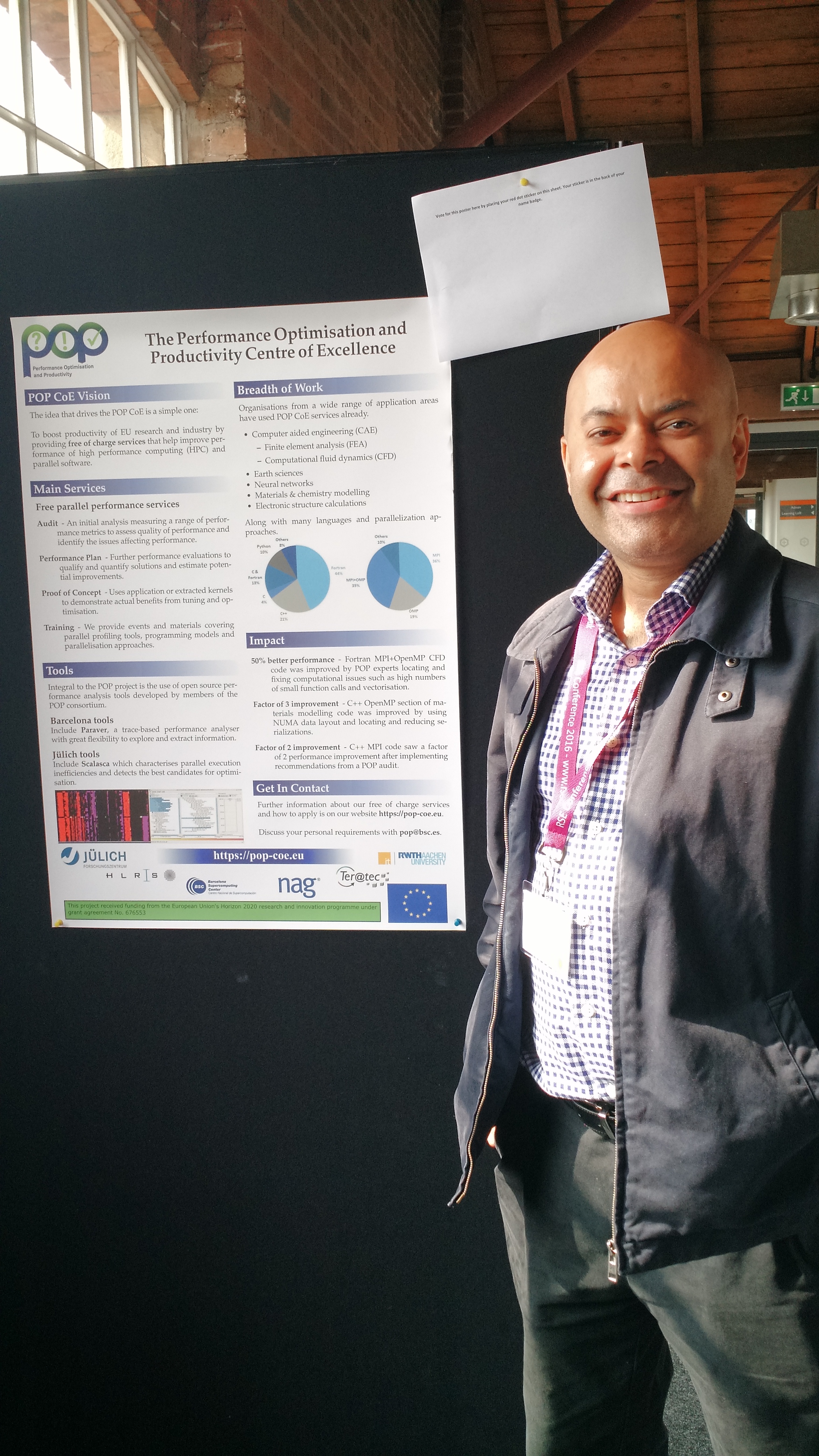My colleagues and I recently attended the first Research Software Engineers Conference in Manchester, UK.  The conference was set up as a forum for people who write code in research environments to share experiences and technical knowledge. As well as conference talks, there were a number of longer workshops that gave the participants the chance to gain hands-on experience with tools such as Docker and the Intel Vectorization Adviser.
The conference was set up as a forum for people who write code in research environments to share experiences and technical knowledge. As well as conference talks, there were a number of longer workshops that gave the participants the chance to gain hands-on experience with tools such as Docker and the Intel Vectorization Adviser.
POP had a poster highlighting some of the work that we have done so far and showing a breakdown of the subjects and languages that our codes cover. You can see a picture of Wadud Miah from NAG next to the poster in this article. The POP service was also advertised during a number of technical talks, including by Sameer Shende during his workshop demonstrating the parallel performance analyser TAU. POP was definitely relevant to the work being undertaken by many of the conference attendees.
 The conference was held in the Museum of Science and Industry in Manchester, which showcases Manchester's contribution to the fields of science and technology from the Industrial Revolution to the present day. The museum features a working replica of the Manchester Small-Scale Experimental Machine, also known as "Baby". This was the world's first stored-program computer and is thus a forerunner of all modern HPC machines. Weighing almost 1 ton, Baby has thirty-two 32-bit words of RAM and is capable of performing over 1000 instructions per second.
The conference was held in the Museum of Science and Industry in Manchester, which showcases Manchester's contribution to the fields of science and technology from the Industrial Revolution to the present day. The museum features a working replica of the Manchester Small-Scale Experimental Machine, also known as "Baby". This was the world's first stored-program computer and is thus a forerunner of all modern HPC machines. Weighing almost 1 ton, Baby has thirty-two 32-bit words of RAM and is capable of performing over 1000 instructions per second.
Nick Dingle (Numerical Algorithms Group)
